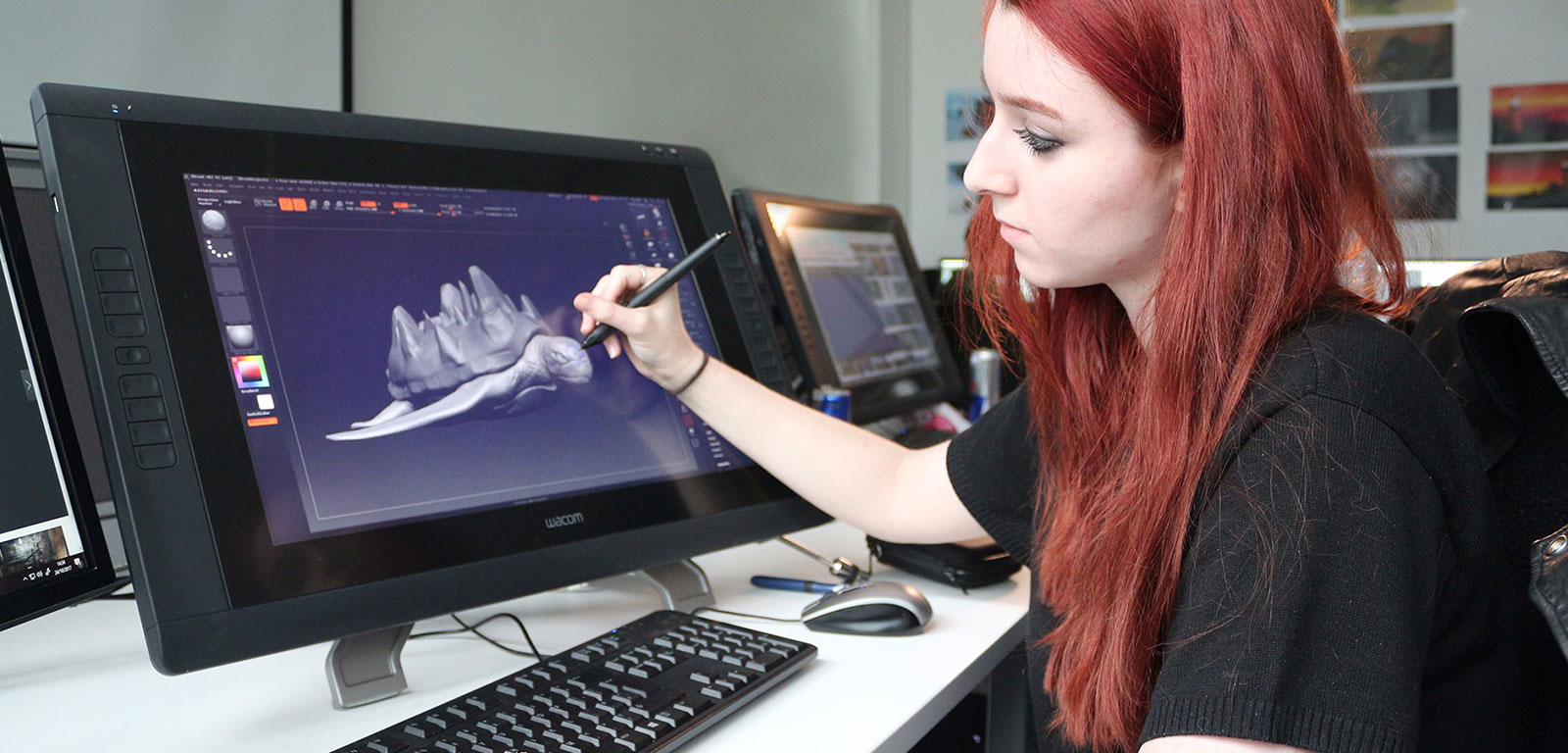

We accept the following English language qualifications at the grades specified*:
IELTS Academic module overall 6.5 with 5.5 in each component.
TOEFL-iBT (including Special Home Edition) 92 or above with 20 in each section. We do not accept TOEFL MyBest Score to meet our English language requirements.
Cambridge English: Advanced or Proficiency overall 176 with 162 in each component.
Trinity ISE: ISE II with a distinction in all four components.
We also accept a wider range of international qualifications and tests.
English language qualifications must be no more than three and a half years old from the start date of the degree you are applying to study, unless you are using IELTS, TOEFL, or Trinity ISE, in which case it must be no more than two years old.
Our multiple award-winning programme differs radically from most animation programmes in that we teach the full spectrum of production methods. You will learn about 2D and 3D techniques, using both cameras and CGI, as well as puppet based stop-frame. You will work individually or in a team to make films, documentaries and installations.
Our students have previously won awards at Annecy, the Royal Television Society (RTS), the BAFTAs and the Emmys.
Animation is becoming increasingly ubiquitous and animators are becoming more sought after by employers. From the animated icons on your phone, the visual effects on the latest feature films, and the interactive worlds and characters on games consoles, to multi-million-view viral web animations; all of this is the work of animators.
Here at Edinburgh College of Art (ECA) you will be taught in a uniquely broad way, synthesising classical animation technique with innovative technologies that results in a distinctive digital/analogue hybrid.
Animation is one of the few media that will allow you to create worlds, populate them, and develop consistent systems of cause and effect (moral, ethical and physical). These are the resources that animators use to either inform an audience for social and commercial purpose, or to immerse them in a compelling narrative - often both.
Hand-in-hand with the development of your practical skill base, you will also develop your critical awareness of the medium and its associated industries. You will be able to contextualise your practice and maximise your chances for employment within a continually diversifying range of opportunities within the field.
Integrated with the practical studio work, Design & Screen Cultures courses provide a contextual and theoretical understanding of the holistic nature of contemporary design and screen studies.
Year 1
This year is about moving things.
You will be introduced to the theoretical and contextual aspects of design through a series of lectures and seminars.
Studio based projects will introduce you to the fundamentals of animation by way of short sequential projects. Longer projects will deal with collaborative work with other disciplines, and you will attend regular life drawing classes to develop skills in research and observation.
In Design & Screen Cultures you will address the key histories and theories of design.
You will be able to take up to 60 credits of option courses, either within ECA, or across the wider College, subject to availability and discussion with your Personal Tutor and relevant course organisers. This offers you the flexibility to construct a suite of courses that reflects your interests and enhances your main study.
Year 2
This year is about moving expressively.
Year 2 focuses on taking the basic theories, practices and technical instruction that has informed your learning until now. These will be expanded to include character, emotion, fact, narrative and sound.
Projects become slightly longer and your animated output will become subtler, and more considered.
Again, alongside Design & Screen Cultures courses, you will be able to choose option courses, subject to availability.
Year 3
This year is about moving somebody else.
The role of animation as a provided service is the emphasis of Year 3. Students will be required to participate in a series of live projects, working with people outside the usual College environment. These might include commercial and business interests, creative professionals, charities, public bodies, or researchers.
Alongside Design & Screen Cultures courses, option courses are available from within the wider College.
Opportunities for study abroad help broaden your understanding of the discipline.
Year 4
This year is about moving the masses.
The final year is where you showcase your learning via an extended project that will be screened to the public.
Your final project will be a sustained and complex production. It will be negotiated with programme staff, and presented to guests from the animation industry for discussion and critique.
You will also complete a written dissertation.
Programme structure
Find out more about the compulsory and optional courses in this degree programme.
To give you an idea of what you will study on this programme, we publish the latest available information. However, please note this may not be for your year of entry, but for a different academic year.

While engaged in their studies, students on the Animation programme have extensive opportunities to work on live projects with industrial partners.
Animation students from ECA have gone on to work for:
The career opportunities for animators are increasing each year, sometimes in surprising ways. There are opportunities for animators to work in:
As well as the usual mix of film, television, advertising and music videos.
Many of the essential skills, such as storyboarding, are now directly applicable to a range of design disciplines such as product design, user experience design, and even the design of roller coasters.
